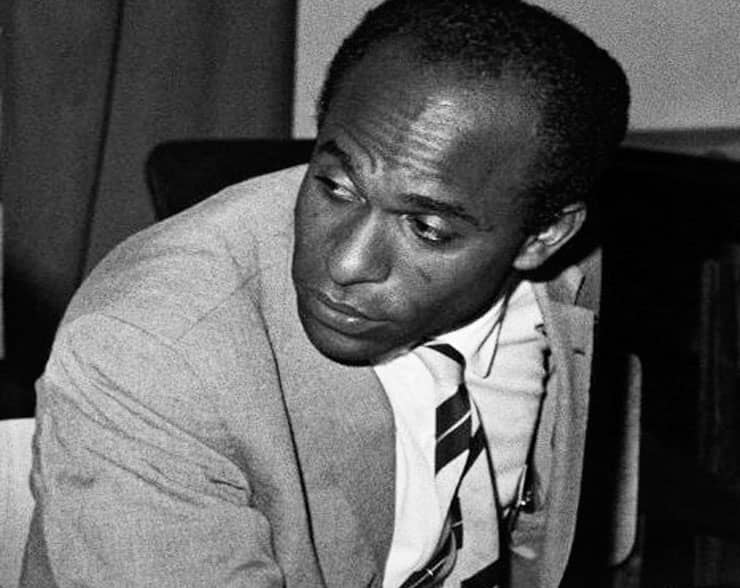Oppressed Peoples Online Word...The Voice Of The Voiceless
Everyone sees what they want to see in Frantz Fanon.

The anti-colonial icon is endlessly quoted by leftists tweeting about Black Lives Matter or Palestine. He is the father of ongoing efforts to “decolonize psychiatry”. He has even been invoked by the far-right conspiracy theorist Renaud Camus, the father of the “great replacement theory”, to support his calls for depopulating Europe of non-white immigrant “occupiers”.
But since 7 October, the Martinican-born psychiatrist, who became a fighter in Algeria’s revolution, seems more popular than ever. After Hamas militants broke out of Gaza and killed 1,200 Israelis, Fanon has been regularly quoted, dissected and wrangled over in social media posts in an effort to explain the massacre and Israel’s ensuing bombardment of the besieged territory, which has killed more than 30,000 Palestinians.
A cascade of statements and thinkpieces have sought to grapple with how Fanon’s controversial theories of violence and decolonization apply to the Hamas attacks. In a 9 October statement titled Oppression Breeds Resistance, student groups at Columbia University quoted Fanon: “When we revolt it’s not for a particular culture. We revolt simply because, for many reasons, we can no longer breathe.” A November op-ed closes with another quote: “For Palestinians in Gaza and beyond, for the wretched of our shared earth, as for Fanon, ‘to fight is the only solution’.”
For Adam Shatz, as deeply as Fanon has been celebrated, he has also been misunderstood. Shatz is the author of a masterly new biography of Fanon, The Rebel’s Clinic: The Revolutionary Lives of Frantz Fanon (Farrar, Straus and Giroux). In it, Shatz seeks to dispel some of the mythologies that have shrouded the man Shatz calls the “tribune of the oppressed”.
“Fanon continues to be an iconic figure,” Shatz says, “and that means there are all sorts of different ideas that surround him which require cutting through in order to understand him with any sense of clarity.”
For Shatz, a journalist, essayist and US editor at the London Review of Books, it is the contradictions in both Fanon’s political writings and life story that make him such a compelling figure, more than 60 years after his death.
Perhaps no contradiction in Fanon’s life is more salient than the one between Fanon’s “practice as a healer”, Shatz says, “and his practice as a fighter or as someone who advocates violence as a kind of therapy for the oppressed”. Amid fresh debates about the virtues of armed resistance, the book couldn’t have come at a better time.
The basics of Fanon’s trajectory – from a middle-class West Indian family in colonial Martinique to a militant in Algeria’s independence movement – will be known to most people with cursory knowledge of the anti-colonial struggles of the mid-20th century.
Born in 1925, Fanon grew up a fervent French patriot who fought against the Nazis for Charles de Gaulle’s Free French forces in North Africa and Europe before settling in France to study psychiatry.
OPOW: Read more on Omar Ibrahim Franz Cannon: https://oppressedpeoplesonlineword.ning.com/profiles/blogs/ibrahim-omar-frantz-fanon-the-muslim
Bilal Mahmud المكافح المخلص
Kofi Bilal Mahmud Eid AlFitr 1443 A.H.
Kofi Bilal Mahmud
Executive Director
Oppressed Peoples Online Word
Your Voice Since 2010
The Voice Of The Voiceless...A People Without A Voice Can Not Be Heard!
Periodically we at OPOW have to make an evaluation on our being able to sustain this effort of bringing you stories that many of you enjoy. We do not take adds, nor do we charge a subscription. Much or most of our operating expense is covered by a few individuals who have been very generous over the past 13 years.
Much of our content is supplied by volunteers and myself. With that being said, we need your support to continue this effort. No amount is too small or too large. Please consider becoming a much needed supporter of OPOW today. In advance, from all of us at OPOW, we thank you for your continued support.
Support OPOW: OPOW Needs Your Support - Oppressed Peoples Online Word...The Voice...
The Voice Of The Voiceless... A People Without A Voice Can Not Be Heard...
Make Your Pledge To OPOW, The Voice Of The Voiceless
Or Cashapp: $bilal1370
Zelle: jabal51@hotmail.com
Mail: Little Deep Creek LLC
P.O. Box 1241
Conley, Ga. 30288
Oppressed Peoples Online Word
Your Voice Since 2010
Support OPOW Today...An Appeal From The Executive Director Bilal Ma...
Thank you from all of us here at OPOW
Chip In To Help OPOW Make A Difference
Visit Us On Facebook: (2) Facebook
OPOW Above The Fold
Aug 26